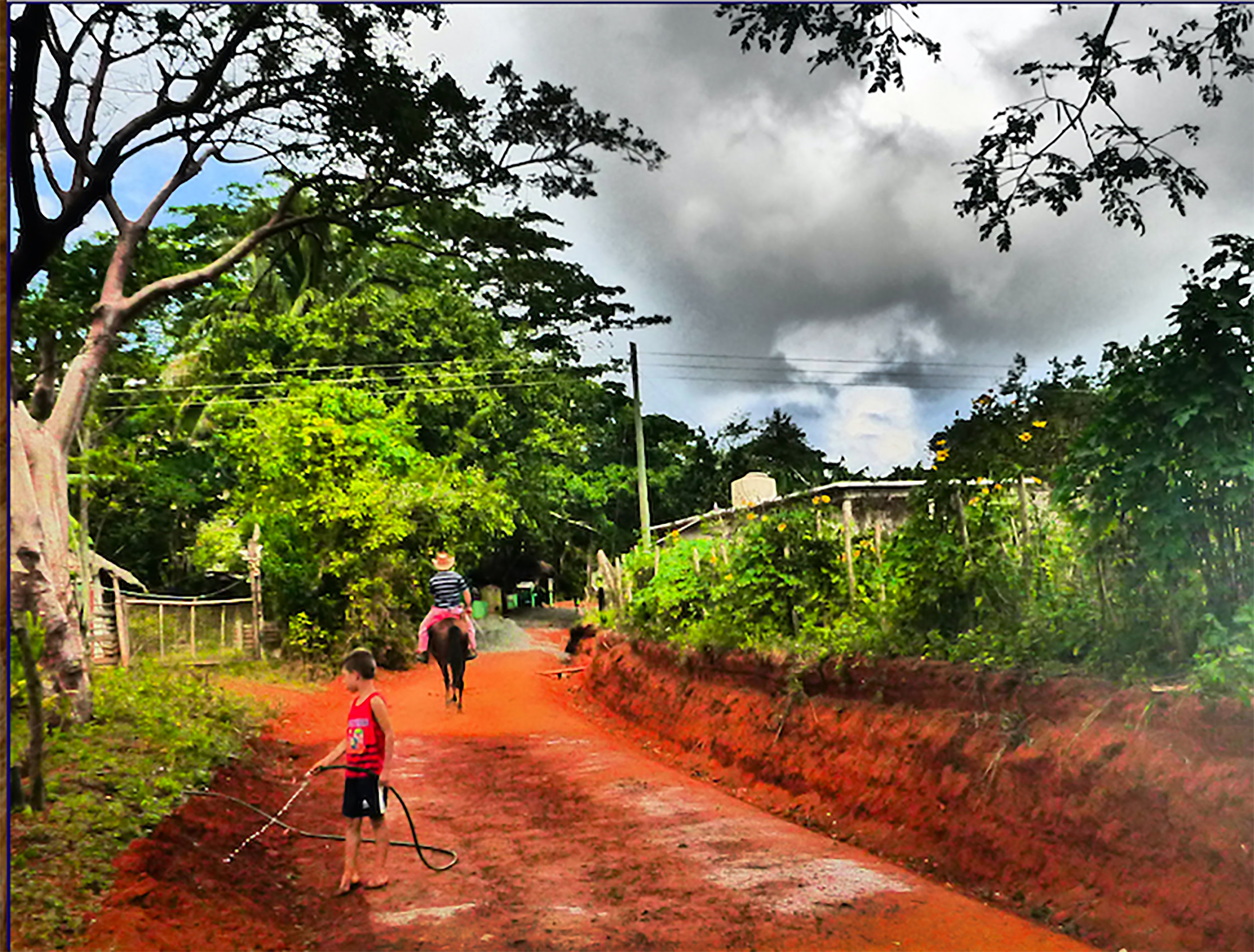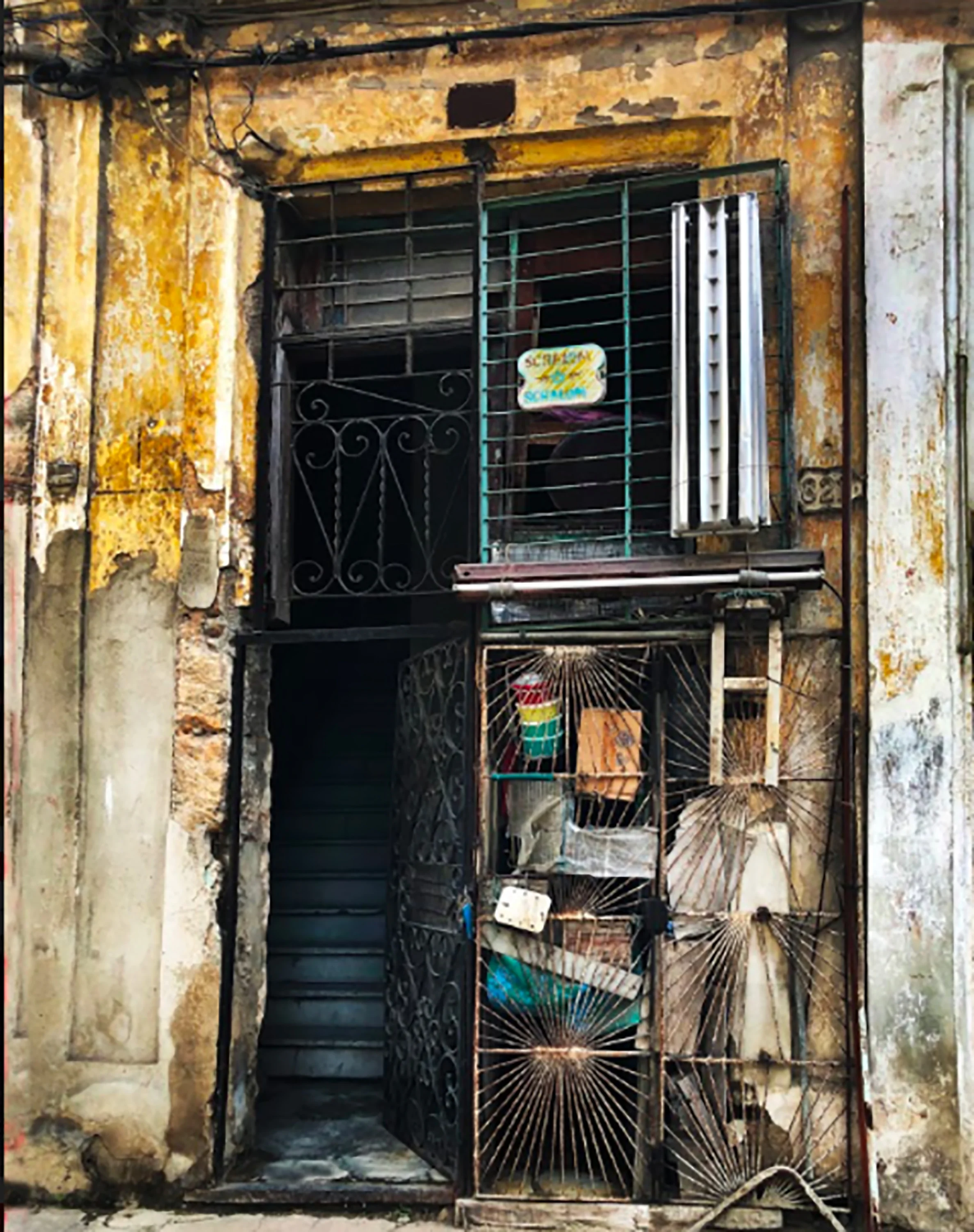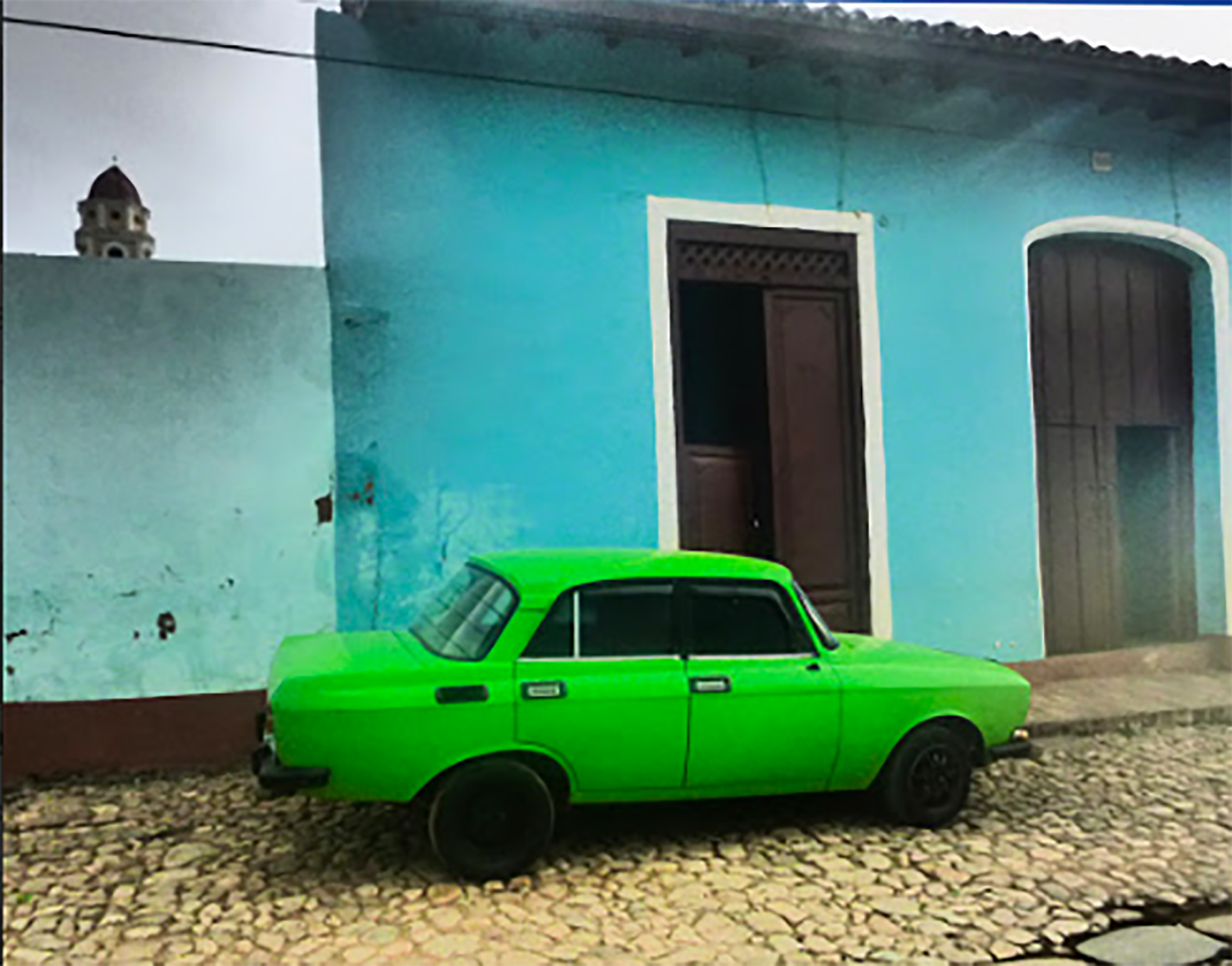Travel To Cuba Today By Carol Weinberg
Travel To Cuba Today By Carol Weinberg
By Carol Weinberg, Contributing Travel Editor for Jejune Magazine
Just when Americans were starting to make there way down to Cuba, the Trump administration just passed restrictions, which will make it harder for us to get there. Carol Weinberg, photographs a country that is beautiful, historic and frozen in time, which she describes the Cubans, to be "warm and hospitable."
--- Alison Hernon, Fashion Director, Jejune Magazine
1. Occupation:
Photographer/Artist Carol Weinberg
2. Travel Destination:
Cuba
3. What inspired you to go to Cuba?
It was always something I had wanted to do. I find the fact that this country was frozen in time fascinating. I wanted to photograph it before it had changed too much.
4. Is it difficult to arrange flights to Cuba? Is it only certain airlines?
Not right now, it was really easy. We booked a flight that was direct to Havana. When we reserved the ticket, the airline asked what visa you are traveling under. We told them "Support of the Cuban People." I think there are 2 airlines that go there.
5. How did your register yourself when you went to Cuba, it looks like you cannot just go as a normal tourist, or if you do you need to set up a preapproved tour. Did you find this restrictive? Do you still feel like you got to experience the heart of Cuba?
We didn’t have an issue traveling, we got the visa at the airport before we took our flight. They have a desk for Cuban flights, which you pay extra for the visa. Going in and out of Cuba was very easy and no drama. We took a tour for three cities outside of Havana because we planned the trip 2 weeks before we left. It was good for the amount of time we were there that we didn’t have to figure out logistics.
6. Where did you stay on your visit? Did this have to be pre-approved as well?
We stayed with families that run small B&B type places. Some we booked on Air B&B, some were booked from the tour. The people are very warm and accommodating. Some places were less comfortable then others - showers with no water pressure, old mattresses, but they were fine, if you don’t mind roughing it. You can stay at more upscale places if you like that type of trip. You are not allowed to stay at State Run Hotels, I’m not sure what hotels are not state run. It's a weird situation because even the B&Bs pay high taxes when you stay with them. They cost between $25-$60 dollars a day.
7. Did you interact with the locals? What is their opinion on living in a Communist country?
We did interact with them because we stayed with them. Most didn’t really speak English that well but the ones that did gave us a lot of information. Our tour guide who is going to leave next year because his whole family is in Miami had said something interesting “Cuba keeps people equally poor." There is a class system that I think comes from people who have families in the US, who send them money. The dollar for them is very strong. I think there is a black market also that is not spoken about. There are two currencies, one for tourists and one for the Cubans. The Cuc is pretty much one dollar equals one Cruc. It’s a way for the government to control the money people make from tourism. The Government makes them keep track of the people they rent to.
8. Do the Cubans describe what it’s like to live in a Communist country?
The people who are in the tourist industry have started making more money because it is a booming business. Everybody tries to get in on it by running things on the side. If you work for the government you don’t make much money about $15 a month. You get free food once a month that can last a week. They educate everyone for free, even higher education. They send their Doctors to other countries around the world. The Doctors get a better tax break and send back money for their taxes, which are very high.
9. Did you feel animosity being an American, or were the people very welcoming?
The people were very warm to us. They didn’t like our President very much though.
10. How do the people there feel about Americans finally being able to travel to Cuba again? How do they feel about Trump’s restrictions?
They like that Americans are traveling there, but there aren’t that many right now. Most come from other countries, we met many from Australia, England, Germany and South America. They really don’t like Trumps restrictions which I don’t think are fully in effect yet.
11. Do Cubans want to improve their relations with the US or are they bitter about our past?
I think they would like to improve relationship with us because it means more money will flow into the country which in turn helps them to make more money. I didn’t hear anything about bitterness except for the history in the Museums. It tells how they won the war from our take-over of their country.
12. Please describe your experience there:
I really enjoyed the people and the old cars and architecture. It’s like being on a movie set. The old cars are mostly used for taxis and are totally remade, sometimes from different cars. A few are in mint condition. The furniture is also from the 40s-50s The buildings have 12-16 foot ceilings and must have been amazing in the time of opulence. We traveled to other cities, each with its own feel. Trinidad had beautiful buildings. The official buildings are all renovated and there are good restaurants in the middle of town which you can tell were financed from outside the country. When you walk a few blocks outside the center, the people live poorly. But they are very creative in the use of everything, for example a shop might be a staircase going to a building or a fence in the country is made of small trees.
13. Are the restaurants all local Cuban food, or are there influences of other cultures present?
The food is mostly basic meat, fish or chicken with rice and beans. But there are new restaurants that are really good and a bit more trendy. The vegans on the trip had a harder time finding a variety to eat.
14. Are all the cars and buildings that the people possess from several decades ago around the Cold War?
Most of them are but there are some cars from the last few years, even yellow cabs. The communist did build some soviet style apartment buildings that were in bad condition.
15. Is anything changing or developing in the country with all the new tourism coming to Cuba?
Yes the country is changing but they know that the old style is what makes it special. You are not allowed to build or own anything unless you are Cuban and living there.
16. What was your favorite thing about the trip?
I loved photographing the old walls and buildings. There are layers of paint and cement. The people are also very nice and helpful. The Cuban Art is amazing. The National Art Museum was well worth the 5 Cuc price.
17. Do you recommend visiting Cuba to others? Please explain.
Yes. It is a very different trip then to other places because of the history and politics. The only down side was the smell of diesel fuel from the old cars and trucks Also because the people are poor, there is an element of them hustling you. Everyone has a friend to get you cigars or cabs, mostly they can scam you if you let them- but it is pretty safe there on the whole.
18. Any resources: housing, flight links you want to let the Jejune readers know about to help them make a trip to Cuba now!
As far as flights, there are many airlines which fly direct. American, United, Jet blue and Alaska Air. I recommend Air B&B for accommodations, Lonely Planet is a great resourse for finding out what to do and see and Trip advisor for restaurants. I really liked Venales and Trinidad. We didn’t hit the beaches except for the Bay of pigs, which has the blue Caribbean water but a sharp rocky beach. If you are in Havana, I would recommend looking for a local tour guide. The concierge of the big Hotels can help you find things, for a dollar tip- they will help a lot. Also, the internet is sparse but you can connect at the big hotels in town or the parks. You can buy the cards from the hotels for a little more money or wait on long lines at the phone company’s stores.
19. Website: https://www.carolweinberg.com/travel
20. Instagram: @carolweinbergphoto
Carol Weinberg was born and raised in New York City. Her artistic career as a photographer, painter and collage artist hasbeen shaped in large part by her total immersion in the city's always exciting and stimulating pop culture.
Her days as a young art student at the prestigious high school of Art and Design, and later at Parsons School of Design foundWeinberg experimenting with her camera in and out of the dark room. Always with her finger on the pulse, she began taking hercamera everywhere. Her contemporaries were fashion designers, musicians, painters, sculptors, filmmakers and of course otherphotographers. All were wildly talented young kids living in New York and Weinberg was documenting it all.
Photography became Weinberg's artistic outlet culminating in a successful commercial career as a Fashion, Music and Celebrityphotographer.
But, she never lost her passion for shooting "the street" When her assignments took her around the world she would always find timeto shoot locals in the market streets of Beijing, nightlife in Tel Aviv or Carnival in Rio des Janiero.
As a result she has built a vast archive of original images, which she now draws from to create her most recent artworks.
Facebook: https://www.facebook.com/carol.weinberg
instagram: carolweinbergphoto
Websites: https://www.carolweinbergphoto.com, https://www.carolweinberg.com
Email: carolweinbergphoto@gmail.com




















